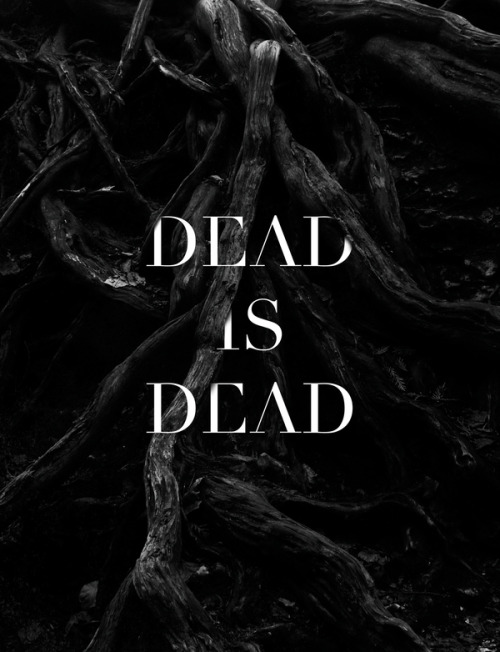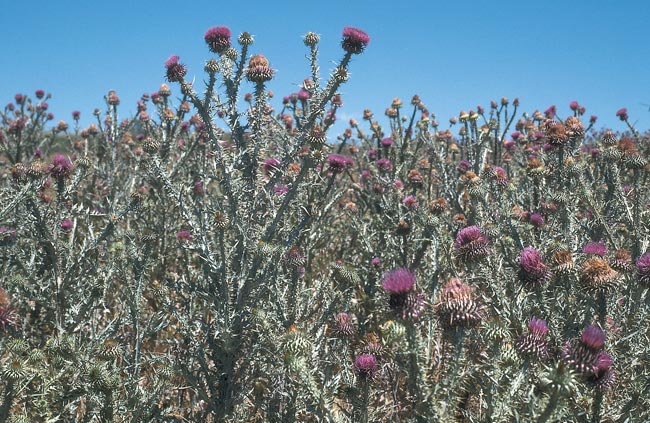 There is fertile soil in our lives. It's all around us, really. Fertile soil everywhere, especially here in Saskatchewan. It's got some of the richest soil in all the world, which is why we tend to be the breadbasket of the country. What does everyone know about this fair province? We've got wheat.
There is fertile soil in our lives. It's all around us, really. Fertile soil everywhere, especially here in Saskatchewan. It's got some of the richest soil in all the world, which is why we tend to be the breadbasket of the country. What does everyone know about this fair province? We've got wheat. That might be about it.
But here's the funny thing about the province of Saskatchewan, which is that it has amazing soil, yet a very short growing season. We can plant and grow all sorts of things, but for a limited time only. But this province is not the whole world. The entire world isn't this fertile, and it's getting progressively less fertile all the time. The amount of fertile soil is running out all the time. There's a phenomenon out there called soil erosion, which tells us that we are running out of arable soil all the time. Through interaction with human beings, through what we do with agriculture and waste management, arable soil is reducing all the time. We are blasting through fresh, good soil, and replacing it with desert every day without a break. The more we deforest, the more we urbanize, the more we plant and grow, the more we erode the world out there. The soil that is out there is continually running out of good growing ability.
All that this means is that our ability to grow requires good soil, and the amount of arable soil is decreasing, so we have to keep on going back to the same patches of ground where we expect growth to happen. And that leads us into the parable of the sower.
.jpg) The sower's parable, well, that's a wonderful thing, because it uses something we understand to talk about things we don't understand, as parables do. And this one, the parable of the sower, teaches us about the word of God, and the work that it does. Traditionally, the simplest way of looking at it is
The sower's parable, well, that's a wonderful thing, because it uses something we understand to talk about things we don't understand, as parables do. And this one, the parable of the sower, teaches us about the word of God, and the work that it does. Traditionally, the simplest way of looking at it is that there is good soil, and unsuitable soil; the word of God will be scattered all the way through the world, yet it will not always be received well. It may fall on thin soil, it may fall on rocky ground, or among thorns, and still some of it will end up on good soil, and will grow up. God's word goes out into the world, yet does not always find the most suitable dwelling place. It sometimes ends up in spaces where the devil comes and swoops in and takes the faith away, or faith grows up rapidly and without any root cannot last for long, and all sorts of things. This is how we understand this parable.
But this understanding of the parable leads us to a pretty strange place. Because the majority of the work that we do in evangelism is to approach existing members from other congregations, and bring them into our folds. It's what we do, to encourage the fertile soil that we know is fertile to continue to produce. We go over the same areas of soil, because those are going to produce for us, and we avoid the pathways, the rocky soil, the thorns, because that would be a waste of time and energy. Just keep on plowing, fertilizing the same soil, not rotating crops, and it will keep on eroding gradually, and leaving you with less and less.
But this understanding doesn't work really well with life, or with the reading from the Old Testament for today. Consider this: the Old Testament reading today was from Isaiah 55, and it says the following
Instead of the thorn shall come up the cypress,
instead of the brier shall come up the myrtle;
and it shall make a name for the Lord,
an everlasting sign that shall not be cut off.
 Our big problem is in assuming that unfertile soil is just that, and that is what it will remain. We get to thinking that once soil has dropped in quality, that it is just done, and will no longer be good for growth
Our big problem is in assuming that unfertile soil is just that, and that is what it will remain. We get to thinking that once soil has dropped in quality, that it is just done, and will no longer be good for growth
But the parable of the sower doesn't say that at all. It says that the sower went out and scattered seed all over the place, wherever he may be. The seed went on the path, it went on the rocky ground, it went amongst the thorns, and it wasn't limited to where he thought it would grow. And this is key to understanding the bigger picture of the parable. In the parable, the seed is thrown everywhere, and it wasn't in the sower's mind to keep it to where he knew it would grow. The sower doesn't play it safe, and just toss seed where it is likely to blossom. Instead, the sower casts his seed wherever he is, letting it grow up or not.
Now, you in your lives at home, you may very well be asking 'yes, but what's the point in scattering seed where we don't think it's going to grow? Good question, I s'pose. Isn't that wasting it? Isn't that wasting the seeds and your time? Shouldn't you be going with just good soil and not worrying about this nonsense? Well, that depends on what you think good soil is.
If good soil for you is just where plants are already growing, then your good soil will continue to dwindle nonstop. It will always be going down as the soil erodes, as we build things where soil once was. If you're counting on growing only where things are already growing, then you're going to run out of availability of space. Always going down.
 But the core of the story is that where the sower cast his seed wherever, and did not worry about where the fertile soil was to be found. He wasn't only going to cast that seed where he knew it was going to take root, he was engaged in gaining new fertile soil on the ground. For you see, in your life, you will see example after example of this, where the ground has secrets that you'd never imagined. The ground will yield forth growth in areas that you did not think were fertile. Wherever the seed is massively reclaimed by nature. Detroit is a fascinating case, in which urban areas, wholesale, are being taken back over. Places that we all thought were thoroughly controlled, that were city not country, are being swamped by greenery. If human beings take their feet off of the proverbial accelrators for one second, the natural world can sure take over again. Fertile soil is not always where you think it is, sometimes it is all over the place, and the plants can take over again, if they're planted and watered, even when you think it's over.
But the core of the story is that where the sower cast his seed wherever, and did not worry about where the fertile soil was to be found. He wasn't only going to cast that seed where he knew it was going to take root, he was engaged in gaining new fertile soil on the ground. For you see, in your life, you will see example after example of this, where the ground has secrets that you'd never imagined. The ground will yield forth growth in areas that you did not think were fertile. Wherever the seed is massively reclaimed by nature. Detroit is a fascinating case, in which urban areas, wholesale, are being taken back over. Places that we all thought were thoroughly controlled, that were city not country, are being swamped by greenery. If human beings take their feet off of the proverbial accelrators for one second, the natural world can sure take over again. Fertile soil is not always where you think it is, sometimes it is all over the place, and the plants can take over again, if they're planted and watered, even when you think it's over. Why is this so important? Because you were once a stony, shallow heart. You were once a space in which there would be no growth, and it would have been pointless sowing anything there. Jesus, in his wisdom, decided to scatter seed everywhere, no matter how fertile it would be. He scattered seed everywhere, and gradually, concrete was broken up, windows were smashed, and ground was reclaimed. The sower's work is to scatter seed, and for that growth to happen, and we are perpetually thankful to God that he isn't as weak and frightned as we are, who assume that once ground is gone, it's gone, and not worth considering any further. Our Lord continues to work in his world, giving his word, frequently through us, no matter where he may be. Every time that you're tempted to hold onto that seed, to think about it being only good for where you know it's going to grow, we have that encouragement from the parable of the sower that it's not about only choosing good soil, only playing it safe, but about scattering God's word without a thought for how fertile the ground is before you get started, but realizing that there can be fertile soil anywhere.
Why is this so important? Because you were once a stony, shallow heart. You were once a space in which there would be no growth, and it would have been pointless sowing anything there. Jesus, in his wisdom, decided to scatter seed everywhere, no matter how fertile it would be. He scattered seed everywhere, and gradually, concrete was broken up, windows were smashed, and ground was reclaimed. The sower's work is to scatter seed, and for that growth to happen, and we are perpetually thankful to God that he isn't as weak and frightned as we are, who assume that once ground is gone, it's gone, and not worth considering any further. Our Lord continues to work in his world, giving his word, frequently through us, no matter where he may be. Every time that you're tempted to hold onto that seed, to think about it being only good for where you know it's going to grow, we have that encouragement from the parable of the sower that it's not about only choosing good soil, only playing it safe, but about scattering God's word without a thought for how fertile the ground is before you get started, but realizing that there can be fertile soil anywhere.
You never know until you plant something.
PJ.

No comments:
Post a Comment